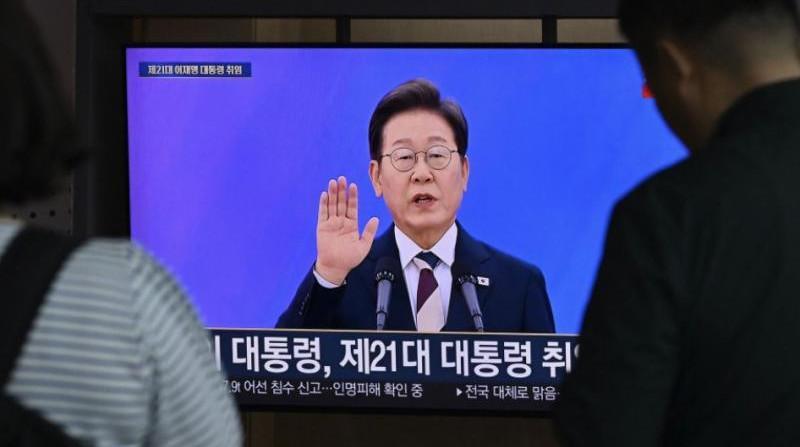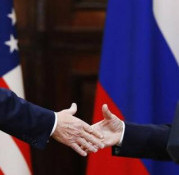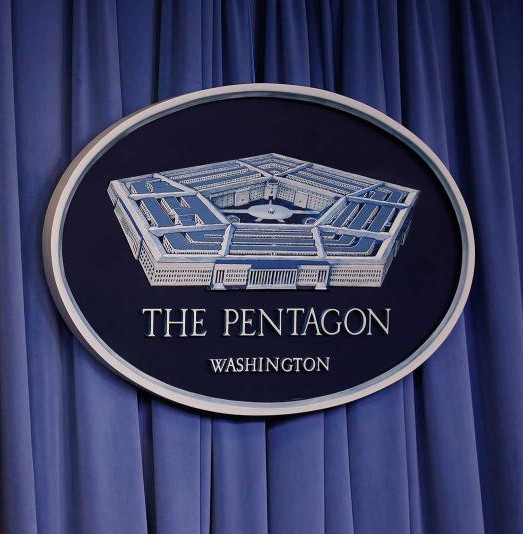
Lee Jae-myung, leader of South Korea's Democratic Party, has emerged victorious in the presidential election, marking a triumph for opposition forces in their bid to oust President Yoon Suk-yeol from power. The latter’s political gamble — declaring a state of emergency last December — proved a costly venture. He was impeached, with a criminal investigation still underway, which could result in lengthy prison sentences for the former president and his allies. Meanwhile, the new head of state must address the deep political divide that has been shaking the country for the past six months.
Lee has been sworn in for a five-year term. "Even when politics divides and politicians argue, the people must not be divided," the 60-year-old leader declared in his inaugural address, adding, "As president, my duty is to unite, not to rule. I will be a president of unity, not of power."
According to the National Election Commission, Lee secured 49.42 percent of the vote, surpassing Kim Moon-soo of the conservative People Power Party, who garnered 41.15 percent. Voter turnout among over 44 million eligible citizens reached 79.4 percent, the highest in 28 years.
Lee pledged to revise the legislation on martial law that triggered the political crisis. "We will restore what was destroyed by the uprising — livelihoods, economy, national security, peace, and democracy — and we will build a society capable of sustained growth and development," he stated.
A top economic priority for the new administration is addressing the 25-percent tariffs imposed by the Trump administration on South Korean goods. For an economy already strained by the political turmoil, this burden is unsustainable, and the new president will have to face tough negotiations with Washington — especially given the new US leader’s apparent inclination to use bilateral trade as leverage to pressure his military and political allies into increasing defense spending.
At the same time, Lee vowed to strengthen the military alliance between South Korea and the United States, while also enhancing trilateral cooperation with Japan to counter the nuclear threat looming on the part of North Korea. He also expressed willingness to improve relations with China and Russia. "Building on the solid foundation of the South Korea-US alliance, we will strengthen trilateral cooperation with the United States and Japan, approaching relations with neighboring countries through pragmatism and national interest," Lee said.
Meanwhile, the future of the Washington-Seoul-Tokyo triangle remains uncertain. The previous American administration sought to mold it into a military alliance targeting China and Russia. However, the new South Korean president, who has been a vocal advocate for compensating Koreans subjected to forced labor under Japanese rule during World War II, made it clear he would not compromise on this issue or the territorial dispute with Japan over the Dokdo archipelago in the Sea of Japan Tokyo also claims.
However, the political chaos of recent months has likely eroded the credibility of South Korea’s ruling class in Donald Trump’s eyes. Meanwhile, deep-seated public resentment toward Japan, stemming from its colonial past, keeps hindering military and political ties between the two nations. Moreover, Trump’s de facto recognition of North Korea as a nuclear power, coupled with his thinly veiled skepticism about US nuclear guarantees, has undermined stability of the military-political framework Biden sought to establish in the Far East.
In this regard, the new South Korean administration’s approach to its northern neighbor is critical.
President Lee affirmed that South Korea remains totally prepared to counter nuclear threats and military provocations from the DPRK while keeping communication channels open. He emphasized his country’s commitment to dialogue and cooperation to achieve lasting peace on the Korean Peninsula. During a phone call with Chairman of the Joint Chiefs of Staff Admiral Kim Myung-soo, Lee urged the military to ensure that South Koreans do not live in a state of constant fear of North Korean provocations.
These statements, however, remain mere declarations for the time being. The new president must also define his stance on the military alliance between Russia and North Korea, which could bring significant advantages to Pyongyang — and headaches to South Korean politicians preoccupied with the "threat from the north."
The previous administration indirectly contributed to this alliance by escalating pressure on Pyongyang, imposing sanctions on Russia in 2023, and allowing arms shipments to Ukraine through third countries. In response to Moscow and Pyongyang’s high-level dialogue, their 2024 mutual defense pact, and reports of North Korean arms supplies and direct involvement in the liberation of Russia’s Kursk region, Seoul imposed new sanctions and threatened to begin direct weapons deliveries. Whether Lee will alter the course remains to be seen.
To Russia, the existence of two Koreas is a geopolitical reality, and Pyongyang’s acceptance of this fact — abandoning the idea of reunification, especially by force — aligns with its own stance. The 2024 treaty can also be seen as reinforcing the status quo on the Korean Peninsula. This was underscored by Russian Security Council Secretary Sergei Shoigu’s visit to Pyongyang on June 4, the day after South Korea’s election.
The talks will focus on "implementing certain provisions of the Comprehensive Strategic Partnership Treaty between Russia and North Korea, as well as commemorating Korean soldiers who aided in liberating the Kursk region," TASS reported, citing the Russian Security Council’s press service. Discussions will also address acute international challenges, including the situation in Ukraine.


